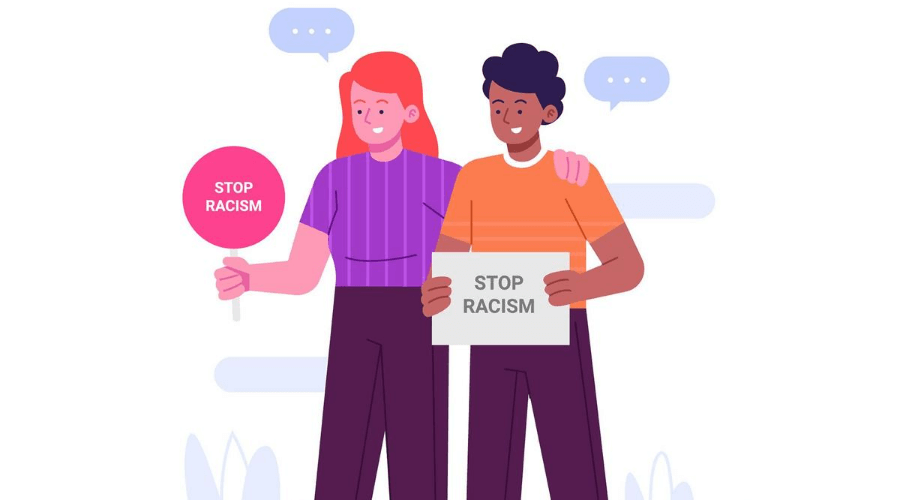Being anti-racist

Most people agree that ending racism is an important step to a fairer and safer society for everyone.
People express their views on ending racism in two different ways, either passively or actively. Doing this is also known as being non-racist and being anti-racist.
Being non-racist, means you don’t believe, act or behave in a racist way. For example, you don’t say offensive comments that are racist.
Being anti-racist, is actively fighting against racism. For example, challenging people, events or systems that you think are racist.
For people who actively try to end racism, being anti-racist is very important.
There are lots of ways to be anti-racist and challenge people, events or systems that disadvantage people because of their skin colour.
If you have privileges, like white privilege, that others do not, you can use these privileges to support anti-racism. This can also be called, being an ally.
To be anti-racist, there are lots of proactive things you can do:
- Learn about others’ experiences
- Listen and amplify non-white voices which might have been ignored previously
- Speak up when you hear racist comments
- Sign petitions to support anti-racist causes
- Contact government leaders asking what they’re doing to create a more fair and inclusive society
- Attend peaceful demonstrations or protests
- Acknowledge your own privilege and issues that might not have affected you personally
- Access resources where you can find out more about race and racism
- Keep supporting causes that are anti-racist and working to gain equality for all.
Questions to consider: Have you seen someone be anti-racist before? How can you be anti-racist? What are the benefits to society if lots of people are anti-racist?

